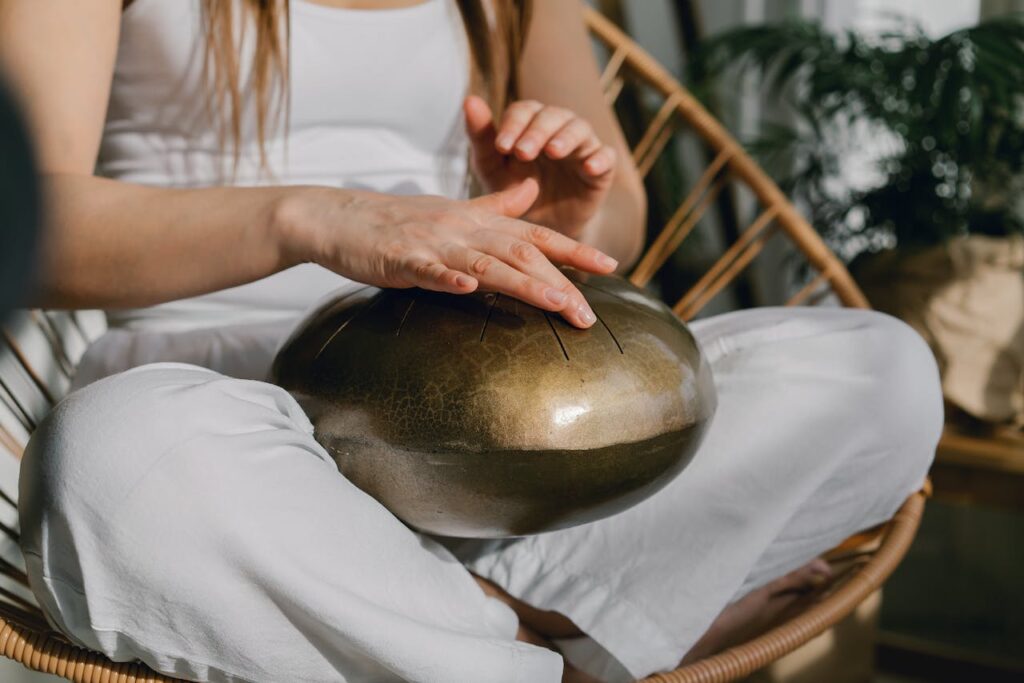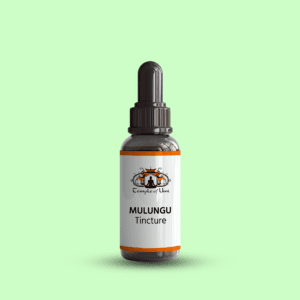Unlock the healing potential of Ayahuasca therapy. From emotional release to spiritual awakening, find out how Ayahuasca can pave the way for profound personal growth.
Introduction to Ayahuasca Therapy
Ayahuasca Therapy: An ancient brew with a modern purpose. Ayahuasca, a sacred concoction with roots deep in the Amazon rainforest, has traversed centuries to become a beacon of healing and introspection in the realm of modern wellness. This potent brew, made from the Banisteriopsis caapi vine and the Psychotria viridis leaf, unlocks profound psychedelic experiences, guiding individuals through transformative journeys.
Historical Origins and Traditional Uses: Historically, Ayahuasca has been the centrepiece of spiritual and healing ceremonies among indigenous peoples of the Amazon basin. These traditional practices, rich with cultural and spiritual significance, have been carefully passed down through generations. They highlight Ayahuasca’s role in community bonding and spiritual awakening and as a bridge to the ancestral and natural worlds.
The Rise of Ayahuasca Therapy in Modern Wellness Practices: In recent years, Ayahuasca therapy has witnessed a remarkable surge in popularity beyond its traditional boundaries, attracting global attention. As individuals seek alternative paths to healing and self-discovery, Ayahuasca has emerged as a powerful tool in the exploration of consciousness, offering insights into the psyche and promoting emotional, mental, and spiritual growth.
Understanding Ayahuasca: The Brew, The Ritual, The Experience
Composition of the Ayahuasca Brew: At its core, the Ayahuasca brew is a synergy between the Banisteriopsis caapi vine, which contains harmala alkaloids, and the Psychotria viridis leaf, rich in the psychedelic compound DMT. This blend, carefully prepared by experienced shamans, initiates a journey through the depths of one’s being.
The Ceremonial Context: Setting, Shamans, and Intentions: Ayahuasca ceremonies are profound events steeped in ritual and reverence. Shamans conduct these gatherings in sacred spaces that foster a sense of safety and belonging. Participants enter with intentions, seeking answers, healing, or guidance, thus setting the stage for a deeply personal and communal experience.
- Setting: A space imbued with respect for the spiritual nature of the journey.
- Shamans: Gatekeepers of knowledge, guiding participants through their experience.
- Intentions: The heartfelt desires of participants seeking transformation.
Phases of the Ayahuasca Experience: Physical, Emotional, and Spiritual Insights: The journey unfolds in stages, beginning with physical sensations, progressing through emotional revelations, and culminating in spiritual epiphanies. Participants may encounter vivid visions, confront deep-seated emotions, and gain insights into their lives and the universe.
- Physical: Sensations and visual phenomena marking the brew’s onset.
- Emotional: A deep dive into personal memories, feelings, and patterns.
- Spiritual: Connection with the transcendent, offering new perspectives.

Scientific Insights: How Ayahuasca Affects the Mind and Body
Neurological Impacts of Ayahuasca: Ayahuasca’s influence extends to the very fabric of the brain, affecting its chemistry and promoting neural plasticity. Research suggests that Ayahuasca may enhance the brain’s capacity for change and healing, potentially resetting the neurological patterns associated with addiction, depression, and trauma.
Ayahuasca’s Potential Therapeutic Benefits: The therapeutic landscape of Ayahuasca is vast and varied, encompassing mental health disorders like PTSD, depression, and anxiety. By facilitating profound introspective experiences, Ayahuasca therapy offers a unique avenue for emotional and psychological healing.
- PTSD: Offering new narratives and perspectives on past traumas.
- Depression: Lifting the veil of chronic sadness, revealing paths to joy.
- Anxiety: Reducing symptoms through insights into underlying causes.
Safety and Health Considerations: While the potential benefits are significant, Ayahuasca therapy has risks. Proper preparation, guidance from experienced practitioners, and attention to medical and psychological history are crucial to mitigate these risks.
- Preparation: Understanding and respecting the brew’s power.
- Guidance: The indispensable role of knowledgeable shamans.
- History: Considering personal health in the context of Ayahuasca use.
Ayahuasca Therapy in Practice
Preparing for an Ayahuasca Ceremony: Mental, Physical, and Spiritual Readiness
Engaging in Ayahuasca therapy is a journey that requires comprehensive preparation across all facets of one’s being. Optimizing one’s readiness involves several key aspects:
- Mental Preparation: Cultivating an open, accepting mindset is crucial. Prospective participants are encouraged to reflect on their intentions and aspirations for the session. Meditation and mindfulness practices help achieve a calm and centred state of mind.
- Physical Readiness: Adherence to a dietary regimen that aligns with the Ayahuasca ceremony’s requirements is advised. This often includes avoiding certain foods and medications that might interact adversely with the brew. Ensuring good physical health through regular exercise and adequate rest is also essential.
- Spiritual Readiness: Engaging in practices that connect one to one’s spiritual self can enhance the experience. This could include spending time in nature, prayer, or other forms of spiritual exploration that resonate with the individual.
Integration: Understanding and Applying the Insights Gained from the Experience
Post-ceremony, integrating the insights and lessons learned during the Ayahuasca therapy session into one’s life is a vital step:
- Reflecting on the experience and journaling can help process the emotional and spiritual revelations encountered.
- Seeking support from community groups or therapists specializing in post-Ayahuasca integration can provide additional perspectives and coping strategies.
- Implementing changes inspired by the ceremony’s insights into daily life, whether through altered behaviour, renewed relationships, or a changed outlook, is critical to a transformative journey.
Finding a Reputable Ceremony: Guidelines for Safety and Authenticity
Ensuring the authenticity and safety of the Ayahuasca ceremony is paramount:
- Research and vetting of facilitators and retreat centres should be thorough, with attention to reviews, testimonials, and the experience levels of the organizers.
- Inquire about the safety protocols, including medical screenings and on-site support during the ceremony.
- Authentic ceremonies often involve leaders or shamans with deep ties to the traditional practices and cultures from which Ayahuasca therapy originates. Verifying their background and approach can help ensure a genuine and respectful experience.
Legal and Ethical Considerations
The Legal Status of Ayahuasca in Different Parts of the World
Ayahuasca’s legal standing varies significantly across the globe:
- In some South American countries, Ayahuasca is legal and recognized as part of traditional spiritual practices.
- In the United States, Ayahuasca falls into a grey area, where it is not explicitly legal, but certain religious groups have been granted exceptions.
- Europe’s stance on Ayahuasca is mixed, with some countries allowing its use in specific contexts and others banning it outright.
Ethical Considerations in the Use of Ayahuasca
The ethical implications of Ayahuasca therapy are multifaceted:
- Informed Consent: Ensuring participants fully know the potential risks and outcomes is critical.
- Sustainability: The increased demand for Ayahuasca has raised concerns about the sustainability of its harvest and the well-being of the ecosystems where it grows.
- Cultural Respect: Engaging with Ayahuasca therapy should be done with reverence for and understanding of the indigenous traditions that have safeguarded this practice for centuries.
The Role of Traditional Cultures and the Debate over Cultural Appropriation
As Ayahuasca therapy gains global attention, the conversation around cultural appropriation becomes increasingly important:
- Acknowledging and respecting the origins of Ayahuasca involves understanding the deep spiritual and cultural significance it holds within indigenous communities.
- Supporting indigenous rights and contributions, rather than exploiting their traditions, is a crucial aspect of ethically engaging with Ayahuasca.
- Open dialogue and partnership with indigenous leaders can help bridge the gap between traditional practices and modern therapeutic approaches, ensuring that Ayahuasca’s use remains respectful and beneficial for all involved.
Personal Stories: Transformations and Challenges
Ayahuasca therapy, an ancient practice turned modern healing path, carries a rich tapestry of personal stories, each narrating a profound journey of transformation and healing. These anecdotes provide a window into the potential of Ayahuasca to catalyze profound, personal change.
- Anecdotal Evidence: Testimonies of Personal Transformation and Healing
- Individuals report profound insights into their struggles, leading to significant emotional and psychological healing.
- Stories of overcoming depression, anxiety, and PTSD highlight Ayahuasca’s potential as a therapeutic tool.
- Participants often describe experiences of profound spiritual awakening and a renewed sense of purpose.
- The Challenges of Integrating Ayahuasca Experiences into Daily Life
- Navigating the return to everyday life can be challenging, as the insights and changes experienced during ceremonies demand integration into the participant’s worldview and lifestyle.
- Some face difficulties reconciling their inner transformations with external realities, including relationships and career paths.
- The Ongoing Journey: Long-term Effects and the Importance of Community Support
- The journey doesn’t end with the ceremony; ongoing support from communities and integration circles is crucial for embedding healing and insights into one’s life.
- Long-term effects can include sustained improvements in mental health and well-being, though outcomes vary widely among individuals.
The Future of Ayahuasca Therapy
As Ayahuasca therapy steps into the limelight of global health consciousness, its future seems both promising and laden with challenges.
- Current Research Trends and Potential Future Applications
- Ongoing studies focus on understanding Ayahuasca’s therapeutic potential, including its effects on neuroplasticity and mental health disorders.
- Research aims to delineate the contexts in which Ayahuasca can be most beneficial, exploring its use in treating addiction, depression, and PTSD.
- The Evolving Landscape of Psychedelic Therapy and Mental Health
- Ayahuasca therapy is part of a broader renaissance in psychedelic research, which is challenging traditional views on mental health treatment.
- The growing acceptance of psychedelic substances in therapeutic settings hints at a future where Ayahuasca could play a key role in mainstream mental health practices.
- Ayahuasca’s Place in the Global Conversation on Healing and Spirituality
- Ayahuasca therapy, with its deep roots in indigenous practices, brings unique perspectives to the global dialogue on healing and spirituality.
- Its place in this conversation challenges the medical community to expand its understanding of healing, integrating spiritual and psychological dimensions.

Final words
As we journey through the realms of Ayahuasca therapy, from personal transformations to its potential future in healing practices, several key points emerge:
- Summary of Key Points
- Ayahuasca therapy offers significant potential for personal transformation and healing, supported by both anecdotal evidence and emerging research.
- Integrating these experiences into daily life presents challenges, highlighting the importance of community support.
- The Importance of Approaching Ayahuasca Therapy with Respect and Caution
- Given its powerful effects and the profound changes it can initiate, approaching Ayahuasca with respect, thorough preparation, and caution is imperative.
- Encouraging Informed and Responsible Exploration
- As interest in Ayahuasca grows, fostering an environment of informed and responsible exploration will be crucial to maximizing its therapeutic potential while minimizing risks.
Ayahuasca therapy stands at the intersection of ancient wisdom and modern science, promising new pathways to healing and well-being. As we move forward, embracing this ancient practice within a framework of respect, research, and responsibility will be critical to unlocking its full potential.





